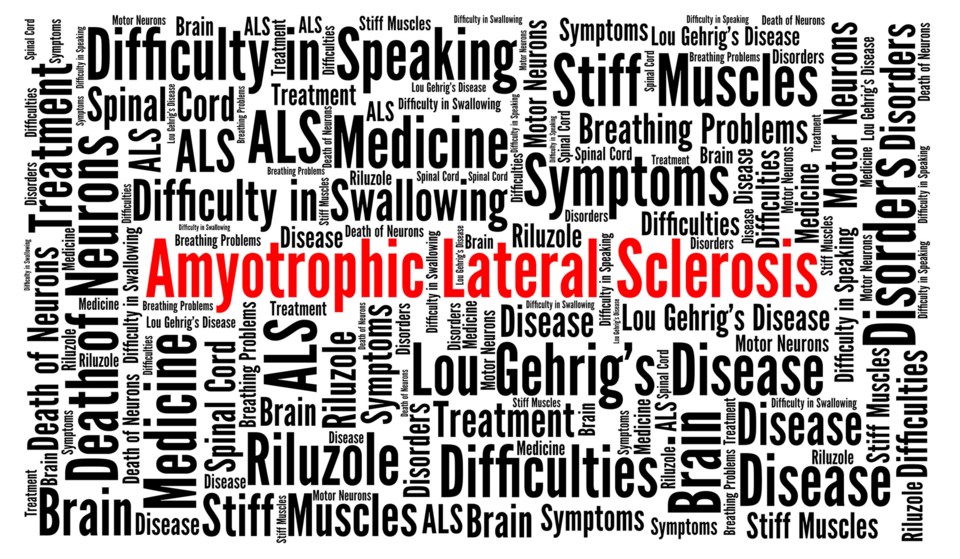That cousin’s father had amyotrophic lateral sclerosis, also known as Lou Gehrig’s Disease, and the challenge was answered. Then she challenged someone else.
Now, six years on, the summer of the ALS Ice Bucket Challenge is long behind us.
But the debilitating disease continues, with close to 3,000 Canadians currently living with the affliction and its litany of effects.
June 1 marked the beginning of ALS Month across Canada, and here in the Land of Living Skies, the local chapter of the ALS Society of Saskatchewan (ALSS) is working hard to help spread awareness and help find a cure, even in the face of the COVID-19 pandemic.
“We’re doing the best we can in the circumstances,” said Denis Simard, executive director of ALSSS. “We are hopeful. We’re hopeful that in the next couple of years we’ll find something to help our clients and help find a solution… in a short amount of time, someone goes from being able to throw a football around with their kids to being in a wheelchair, it’s one of the most devastating things you’ll ever see if you witness it.”
A rapidly progressing neuromuscular disease – Gehrig went from playing Major League Baseball in 1938 to passing away in 1941 – ALS is first noticed through the deterioration of voluntary muscles, resulting in loss of strength and mobility, while having little to no effect on cognitive ability. The degeneration eventually becomes total, as presented by physicist Stephen Hawking, with no cure. No less than 80 per cent of those diagnosed with ALS die within two to five years of diagnosis.
The ALS Society of Saskatchewan, like that of many non-profit organizations battling through the situation and COVID-19, plans to take as many activities as they can online and use social media to help build that awareness and support.
First off are the daily challenges that began appearing on their Facebook page on Monday. They’re simple events, designed to give a feel for how ALS can change lives and make even the simplest of tasks all but impossible.
“People can realize that even if they don’t have someone in their family who is sick, this can help understand what it would mean to have ALS,” Simard said. “The feel-good challenges are a way to do that. Yesterday’s challenge was ‘go for a walk in your neighbourhood,’ something really simple. Today’s challenge is ‘cook a meal with your family,’ taking advantage of those key moments that add value to what we’re doing and sometimes take for granted.”
Things will take a turn for the dramatic in coming weeks, as further challenges designed to show just what it’s like to have ALS are created. One planned for the near future is to wear a heavy woollen sock on your dominant hand for an hour, so show how strength and mobility is affected.
“Imagine going through that and how tough it’s going to be,” Simard said. “You’re going through that for an hour, where when people who are diagnosed with ALS, once they get to that point of losing muscle control, there’s no coming back. So it gives you an idea of what it feels like.”
An online 50/50 is also currently underway, with tickets available online.
The major event of the month will take place on June 21 with their annual Walk to End ALS. This year, it will take place virtually and will feature a number of online events designed to spread awareness.
“During our physical walks, we get a chance to be together, do a [five-kilometre walk], and get a sense of what it’s like to have ALS because of the people who are right there with you,” Simard said. “For the actual virtual walk day, we’ll have a silent auction that will wrap up that day and then basically there will be a one-hour live event with some great videos, people who are going to talk about their experience, and for at least one hour people will be able to immerse themselves in our community and understand what’s going on.”
For more information on ALS and the ALS Society of Saskatchewan, be sure to check out their website, the national website or catch the latest information on their Facebook page.




